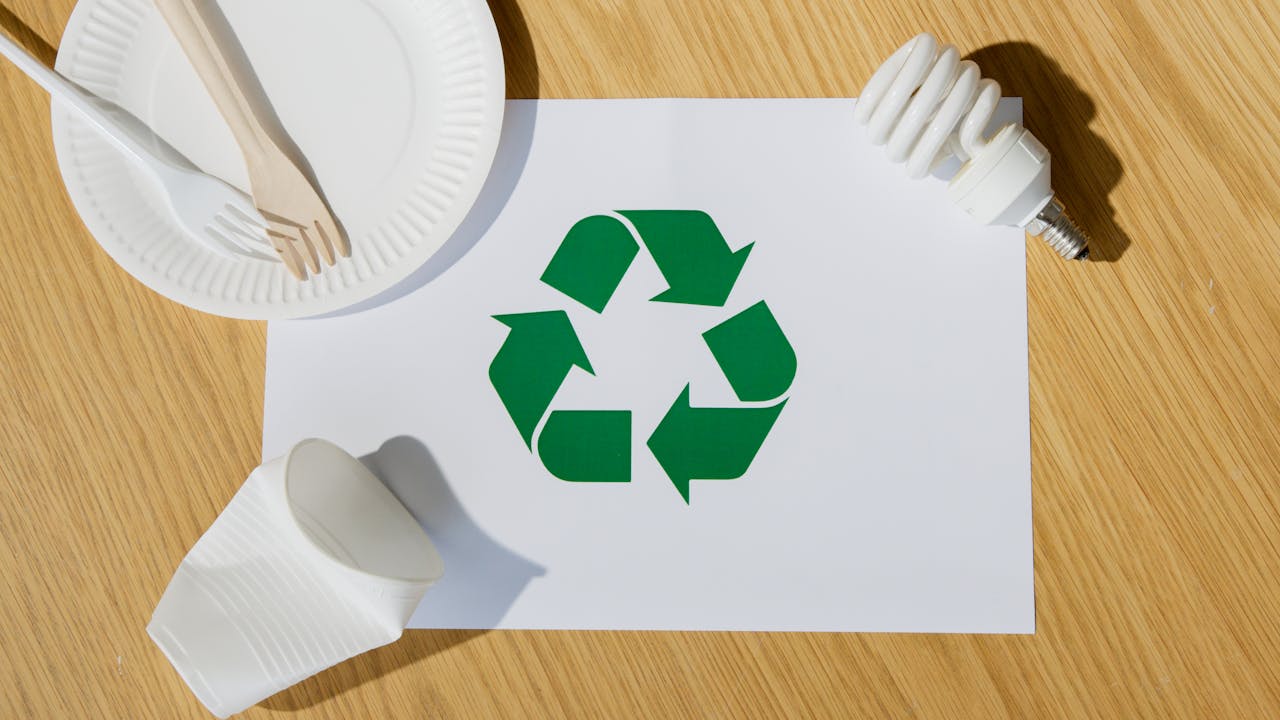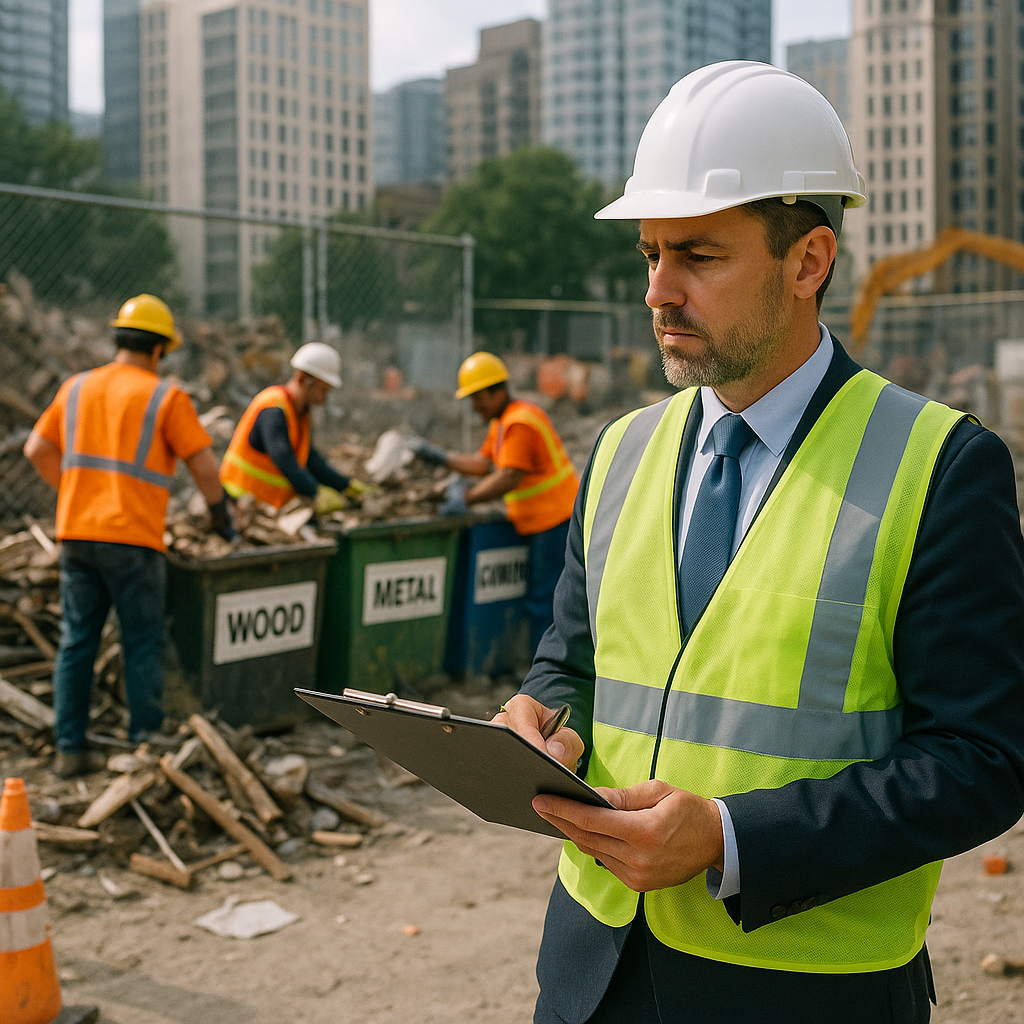5901 Botham Jean Blvd, Dallas, TX 75215
How to Find Local Scrap Drop-off Points
June 14, 2025The old appliances in your garage, copper pipes from a recent bathroom renovation, and aluminum cans in your recycling bin all represent potential cash through scrap metal recycling.
Finding local scrap drop-off points is essential for properly disposing of unwanted metal and potentially earning extra money. Many facilities accept a wide range of materials, from everyday aluminum cans to larger items like junk cars and metal fencing.
Whether you’re a homeowner clearing out clutter, a contractor with excess materials, or someone looking to supplement their income, this guide will help you locate nearby facilities and understand the process of recycling scrap metal in your area.
What Types of Scrap Can You Recycle?

Most scrap yards categorize recyclable metals into two main types: ferrous and non-ferrous. These categories determine both the recycling process and the value you receive for your materials.
Ferrous metals contain iron and are typically magnetic. These include steel products and iron. While usually lower in value than non-ferrous metals, they make up the largest volume of recycled metal worldwide.
Non-ferrous metals don’t contain iron and aren’t magnetic. These include copper, aluminum, brass, and lead. These materials generally command higher prices at scrap yards due to their inherent value and versatility.
Common Ferrous Scrap Materials
Steel is the most widely recycled ferrous metal. It’s found in countless applications from construction to automotive parts. The recycling industry processes enough ferrous metal daily to build 25 Eiffel Towers.
Construction debris often contains valuable ferrous metals. Items like steel beams, rebar, metal roofing, and piping can all be recycled rather than sent to landfills. Many scrap yards specifically handle construction materials.
Automotive components represent another significant source of ferrous scrap. Car bodies, frames, and engine blocks contain substantial amounts of steel. Thanks to established recycling processes, about 85% of a vehicle’s materials can be recovered.
Valuable Non-Ferrous Scrap Materials
Copper wire is among the most sought-after non-ferrous scrap items. The value varies based on whether it’s bare bright copper (highest grade) or insulated wire that requires processing. Stripping insulation from copper wire before recycling typically increases its value.
Aluminum products are lightweight yet valuable for recycling. The energy saved by recycling aluminum instead of mining bauxite ore is substantial—up to 95%. This environmental benefit is one reason aluminum recycling is so important.
Brass components from plumbing fixtures, musical instruments, and decorative items contain copper and zinc alloys that recyclers prize. The yellowish color makes brass easy to identify among scrap metals.
Household Items You Can Recycle as Scrap
Many common household items contain recyclable metals that can be taken to scrap yards. Identifying and separating these materials can generate extra income while keeping valuable resources out of landfills.
- Aluminum soda and beer cans
- Old copper plumbing pipes and fittings
- Brass doorknobs, hinges, and light fixtures
- Steel food cans (usually tin-plated)
- Outdated appliances like washers, dryers, and refrigerators
- Cast iron cookware and radiators
- Aluminum window frames and gutters
- Copper wiring from electronics and extension cords
Using a simple magnet is the fastest way to determine whether an item contains ferrous (magnetic) or non-ferrous (non-magnetic) metal. This basic sorting step helps maximize the value of your scrap and ensures proper recycling.
The recycling process for scrap metal involves sorting, shredding, melting, and purifying the materials. This process requires significantly less energy than producing new metal from raw ore, making recycling both economically and environmentally beneficial.
Electronics contain various metals including gold, silver, copper, and aluminum. While consumer electronics can be recycled, specialized e-waste recyclers typically handle these items due to the complex mix of materials and potential hazardous components.
| Metal Type | Recycling Value (USD/LB) |
|---|---|
| Aluminum Cans | $0.51 |
| Stainless Steel | $0.37 |
| Copper | $2.64 |
| Brass | $1.40 |
| Iron | $0.08 |
What Should You Know Before Dropping Off Scrap?

Sorting Your Metals Properly
Before heading to a scrap yard, separate your metals carefully. Use a magnet to distinguish ferrous (magnetic) materials like steel from non-ferrous metals such as copper, aluminum, and brass. This simple step can maximize your payout.
Keep high-value non-ferrous materials in separate containers to avoid mixing. Many recycling facilities offer better prices for pre-sorted metals as it reduces their processing costs and time.
Remove non-metallic components from your scrap. Strip plastic, rubber, wood parts, and insulation from metal items to increase their value. For copper wire specifically, removing insulation can significantly boost your earnings.
Understanding Current Market Prices
Scrap metal prices fluctuate based on market conditions and demand. Call the facility before your visit to inquire about current rates for different metal types. This helps set realistic expectations for your earnings.
Some facilities offer price-locking programs that allow you to secure a favorable rate even if you can’t transport your materials immediately. Ask if this option is available when you call.
Consider timing your drop-off strategically. Market values can change weekly or even daily, so monitoring price trends might help you maximize returns for larger quantities of scrap.
Researching Facility Requirements
Contact your chosen recycling center to verify their current operating hours. Nothing wastes more time than arriving with a truck full of scrap only to find the facility closed for maintenance or inventory analysis.
Confirm the facility accepts the specific types of scrap metal you have. Some locations specialize in certain materials or have limitations on size and quantity they’ll take.
Ask about documentation requirements. Most legitimate scrap yards require valid identification for transactions, especially for valuable metals like copper or materials with high theft potential like catalytic converters.
Preparing for Transport
Secure your load properly during transport. Use straps or chains to prevent shifting that could cause metals to mix or create hazards on the road.
Distribute weight evenly in your vehicle or trailer. Proper weight distribution maintains stability and prevents dangerous driving situations.
Consider covering loads with a tarp, particularly if transporting lighter pieces that could blow away during transit. This also keeps materials contained and prevents potential littering.
Understanding Facility Policies
Many scrap yards have specific policies regarding hazardous materials. Items containing refrigerants, oils, or other fluids typically require professional draining before acceptance.
Learn about payment methods. Some states restrict cash payments above certain thresholds, requiring checks or electronic transfers instead. Knowing this prevents surprises at the payment counter.
Familiarize yourself with the facility layout if possible. Understanding where to weigh in, unload, and collect payment streamlines your visit and reduces confusion.
Conclusion: Maximizing Your Scrap Recycling Efforts

Proper scrap metal recycling offers numerous benefits beyond environmental conservation. By researching local scrap yards, comparing prices, and understanding which metals have higher value, you can turn discarded items into additional income. Separating materials, removing non-metal components, and choosing reputable facilities ensure you receive fair compensation while contributing to resource conservation.
Ready to start your scrap recycling journey? Preparation is key to maximizing returns. For professional guidance on metal recycling best practices or to learn more about responsible disposal options, contact Okon Recycling at 214-717-4083.
